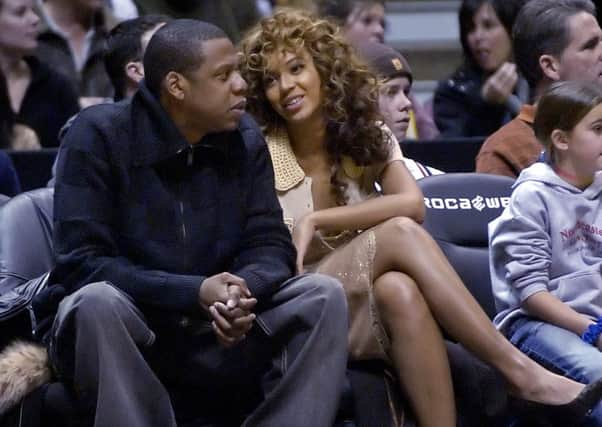Comment: The importance of trademarks


A month ago, we saw eminent physicist Stephen Hawking trade mark his name, and a few months prior there was a spate of trade mark filings from well-known musical artists. Taylor Swift applied for trade marks on song lyrics on her most recent album while Katy Perry was keen to take advantage of her ‘LEFT SHARK’ performance at the Super Bowl.
Celebrities and those in the public eye are increasingly relying on intellectual property (IP) rights in order to protect their commercial interests. But what about Scottish celebrities? Are they too doing all they can to protect their interests?
Advertisement
Hide AdAdvertisement
Hide AdMusicians, artists and authors have traditionally relied on copyright law for protection against unauthorised use or copying of their works. However, artists are frequently looking to other areas of IP law -other than copyright- for protection. Whereas a painting or song lyrics may attract copyright protection, individual terms and names are unlikely to do so. Businesses and brands place huge value and importance on their trade mark rights and several celebrities seem to be following suit by protecting their own names.
In the UK, the Trade Marks Act 1994 permits the protection of personal names. For celebrities, the attraction of registered trade marks is that they can protect their own business interests as well as endorsements and joint ventures with well-known brands. A registered trade mark provides a platform for licensing the use of the name in relation to the promotion of goods. It also provides protection and a way of enforcement against those who look at taking advantage of a celebrity name without the proper authorisation.
Stephen Hawking has followed a long line of public figures seeking to trade mark their names. Power couple Jay-Z and Beyoncé have trade marked their own names, but have also taken a step further by trade marking the name of their three year-old daughter, Blue Ivy Carter. In Scotland, chart topping DJ Calvin Harris (real name Adam Richard Wiles) has amassed huge success, earning him a place on Forbes’ Celebrity 100 list. In order to protect the reputation vested in his stage name, the Scot has registered it as a trade mark, as has Sir Chris Hoy, who has put his name to a range of bicycles, cycling accessories and clothing.
Scotland’s most famous sports star, Andy Murray, is no different and has his name registered as a trade mark. The former Wimbledon champion is also a good example of the need to protect one’s IP as several apparently unconnected third parties attempted to register his name at the UK Trade Mark Register. These applications were refused, showing that trade marking is not just beneficial when it comes to profiting from your own name but also from ensuring others cannot.
Although the applicant for a name trade mark does not have to be the celebrity themselves, there has to be a direct link to the celebrity – a corporate entity for licensing and merchandising for example. Where there is no such link, the application will be vulnerable to rejection for being filed in “bad faith”.
Other famous Scots who have used trade marks to protect their names include Harry Potter author JK Rowling who has not only protected her name, but has also registered her signature as a trade mark.
As we saw with Taylor Swift and Katy Perry’s recent applications, it is not just names that can be trade marked, but straplines and marketing slogans too, so Audi’s “Vorsprung durch Technik” and Nestle’s (KitKat) “Have a Break” are registered as trade marks while Scottish celebrity chef Gordon Ramsay has “Kitchen ware you can swear by!” registered in relation to cooking related goods. These types of trade mark registration are, however, more unusual.
It is clear the use of IP and trade marks is still popular among those in the limelight. When looking to protect their interests, ever more creative ways of doing so are being employed, piquing the interest of the public and ensuring celebrity trade mark stories continue to make the headlines for the foreseeable future.
• Kirsten Coetzee is a Trade Mark lawyer advising in areas including food & drink, fashion & retail and sport & leisure. www.marks-clerk.com